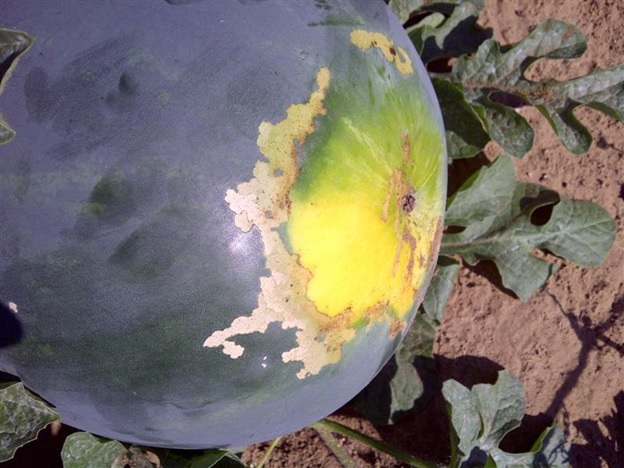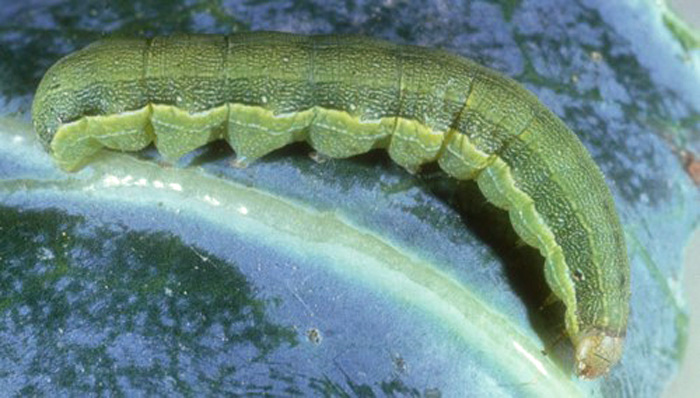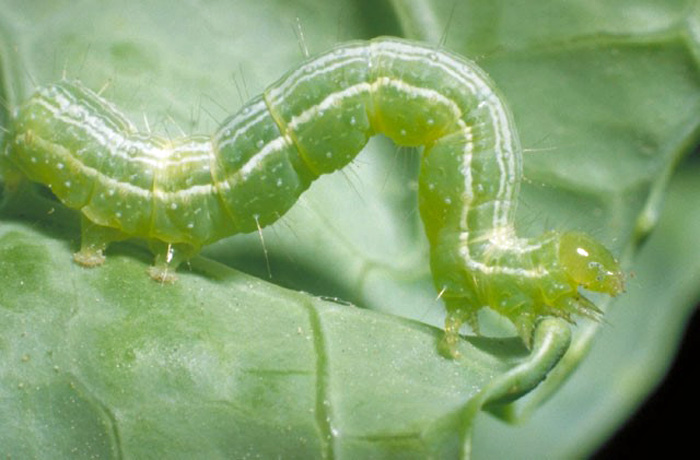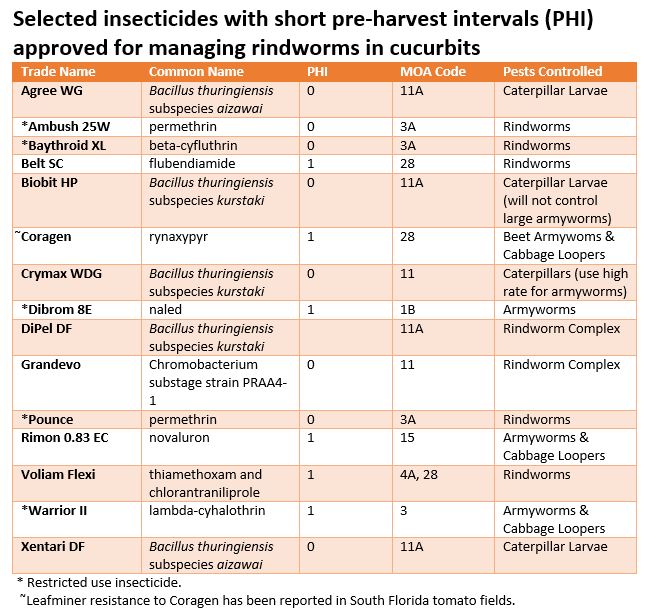
Matt Lollar, Jackson County Horticulture Agent
It’s the beginning of melon harvest season in the Panhandle, and rindworms pose a significant threat to fruit quality. Rindworms are an interesting bunch because they are made up of a number of caterpillar species that fall under the classification of the “rindworm complex”. Any moth larva found feeding on the surface of a melon is considered a rindworm.

Beet armyworm and cabbage looper are the most common rind feeders in Florida, but cutworms, tobacco budworms, corn earworms, and other armyworms can also be found feeding on the outside of melons. Cabbage looper larvae are green with white stripes that run the lengthwise down their bodies. They are called loopers because they arch their back and drag their hind legs to move, similar to an inchworm. Beet armyworm larvae are dull green, have thin stripes down their backs, and have wider stripes down their sides.

Although caterpillars feed on stems and foliage, they cause much more economic damage by feeding on melon rinds. Their feeding causes light-colored blotches on the rind, which makes the fruit less marketable. Scouting for rindworms is difficult and damage is oftentimes not noticed until harvest. With this fact in mind, it is important to select insecticides with short pre-harvest intervals (PHI).
 [warning]Labels change frequently. Be sure to read a current product label before applying any chemical.[/warning]
[warning]Labels change frequently. Be sure to read a current product label before applying any chemical.[/warning]
Download the following fact sheet for more information on controlling rindworms and other insect pests of cucurbit crops:
Insect Management for Cucurbits
Links to referenced materials:
Insect Management for Cucurbits
Resistance Management for Sustainable Agriculture and Improved Public Health
 0
0
